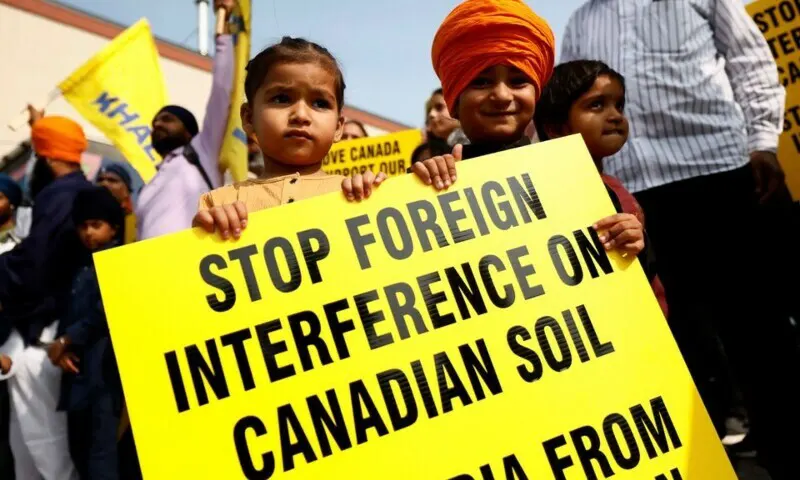India’s external intelligence service is a feared foe in its neighbourhood: Pakistan, Sri Lanka and Nepal have all accused it of political meddling and involvement with outlawed groups that have perpetrated acts of violence.
Now, Canadian Prime Minister Justin Trudeau’s allegation last month that Indian government agents were involved in the June killing of Sikh separatist leader Hardeep Singh Nijjar in a Vancouver suburb has thrust Delhi’s secretive Research and Analysis Wing into the global spotlight.
Reuters spoke to four retired and two serving Indian security and intelligence officials familiar with RAW who said the agency was galvanized to play a more assertive international role after the 2008 Mumbai attacks that left 166 people dead. The officials spoke on condition of anonymity to discuss sensitive matters.
Four officials said that RAW expanded its reach in Western nations gradually after 2008. One current official cited India’s failure to secure the extradition of a US citizen convicted of involvement in the Mumbai attack as a key motivation for RAW to increase its sway in the West.
While in its immediate neighborhood RAW has advanced signal and technical intelligence capabilities, in the West the agency remains largely dependent on human intelligence for its operations, according to one serving and one former official.
RAW, like other arms of India’s national security apparatus, has been emboldened by Prime Minister Narendra Modi, who has bolstered India’s defense capabilities since his 2014 election and built a strongman image, five of the officials said.
RAW Chief Ravi Sinha, the only serving official publicly affiliated with the agency, did not return messages seeking comment. Sinha reports to Modi’s office through the powerful National Security Advisor Ajit Doval, who also did not return a request for comment.
All six officials denied that RAW engages in targeted killings, noting that the agency has no mandate for such operations.
Fallout from the Vancouver incident has also raised concerns that RAW will come under greater global monitoring, Indian intelligence officials and analysts said.
“The current developments have undoubtedly increased global curiosity about RAW,” said Dheeraj Paramesha Chaya, an expert on Indian intelligence at Britain’s Hull University. He said that greater Western scrutiny of RAW’s activities might also bring a closer understanding of Delhi’s security concerns.
The West has expanded military and intelligence cooperation with Delhi as tensions with China have grown, with Washington agreeing in 2020 to share sensitive mapping and satellite data with India.
In the short term, Canada’s assertion might make it harder for Western countries to trust RAW, one of the officials said.
Ottawa and Delhi have been in a diplomatic standoff since Trudeau made his allegations in public.—Reuters










